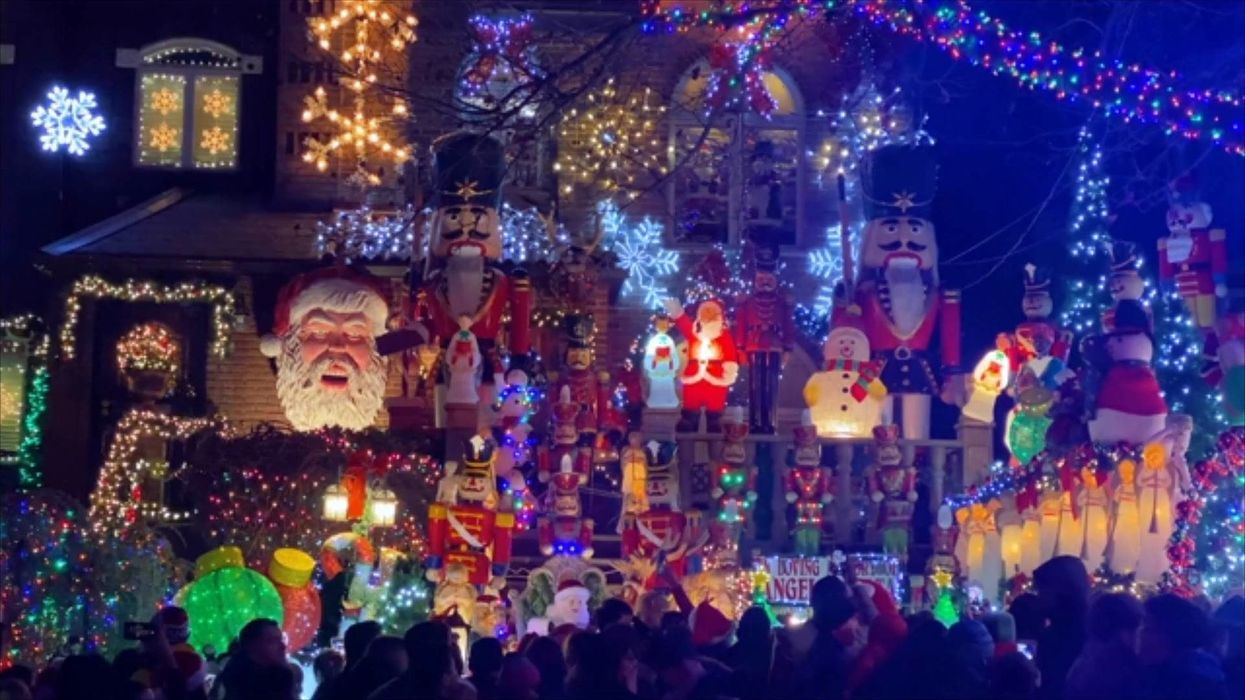With Christmas round the corner, the UK is buzzing with last-minute preparations for the big day. But it's not just Brits who are gearing up for the festivities – celebrations are happening all around the world.
From Iceland to Venezuela, global festivities bring unique customs to the season. Thanks to the language learning platform Preply, many are discovering 10 lesser-known Christmas traditions that might just surprise you.
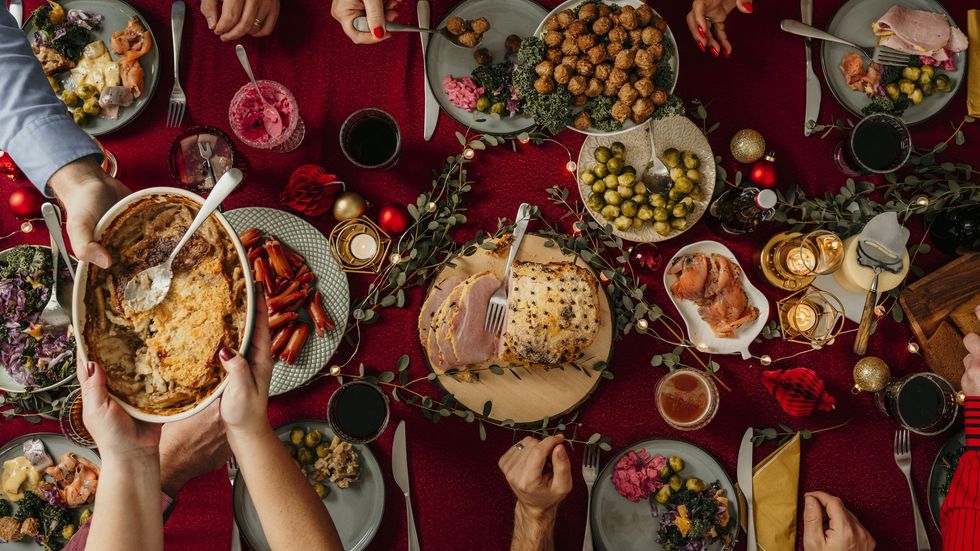
Krampus - Austria
Pronunciation: Cram-puss
Thought to have its origins in Austria, although the tradition carries throughout Alpine Europe, Krampus is the antithesis of Santa Claus who instead of leaving presents, scares the children who have been naughty that year.
In the first week of December, it is traditional for young men to dress up as Krampus and take part in festive parades, scaring the audience with their antics.
The figure of Krampus has now been popularised in American culture, through various TV and film adaptations, although the tradition of Krampus is actually thought to pre-date Christianity.
Befana - Italy
Pronunciation: Bey-Fan-a
In Italian folklore, a figure named Befana visits children traditionally on Epiphany Eve (January 5th) to fill their stockings with sweets and chocolate if they are good. However, only sticks and coal are left if they are bad - much like Santa Claus does on Christmas Eve.
Although Befana mostly bears similarities to Santa Claus, with food being left out for her when she visits, she is almost always depicted as a witch with a broomstick and black shawl.
In some variations of the nativity story, Befana provided the Three Wise Men with shelter for a night as they searched for the baby Jesus.
Jólakötturinn - Iceland
Pronunciation: Yo-la-kurt-urr-in
This literally translates to ‘Yule Cat’, although this Icelandic Christmas kitten is anything but cuddly - Jólakötturinn has claws!
The vicious Yule Cat prowls the Icelandic countryside during Christmas Eve and is said to gobble up anyone who has not been gifted new clothes for Christmas.
This piece of frightening folklore is thought to have been created in the 19th century, as an incentive for Icelandic farm workers to have wool supplies prepared in time for winter.
Grýla - Iceland
Pronunciation: Gree-la
If you thought the Yule cat was terrifying then try its owner Grýla out for size. This Icelandic festive villain is a giantess who lives in a cave and has an appetite for naughty children, whom she cooks in a giant pot.
In Icelandic tradition, Grýla comes down from her cave at Christmas time to hunt for naughty children, whom she collects in a Santa-style sack. It is said that Grýla can be deterred if you leave out food and drink that she can take instead.
Feliz Navidad - Spain
Pronunciation: Fel-eez Nah-vi-dad
Here’s one festive term from around the world that most people in the UK will have heard before.
Popularised particularly through José Feliciano’s 1970 classic Christmas song of the same name, Feliz Navidad is quite literally Spanish for “Happy Christmas”.
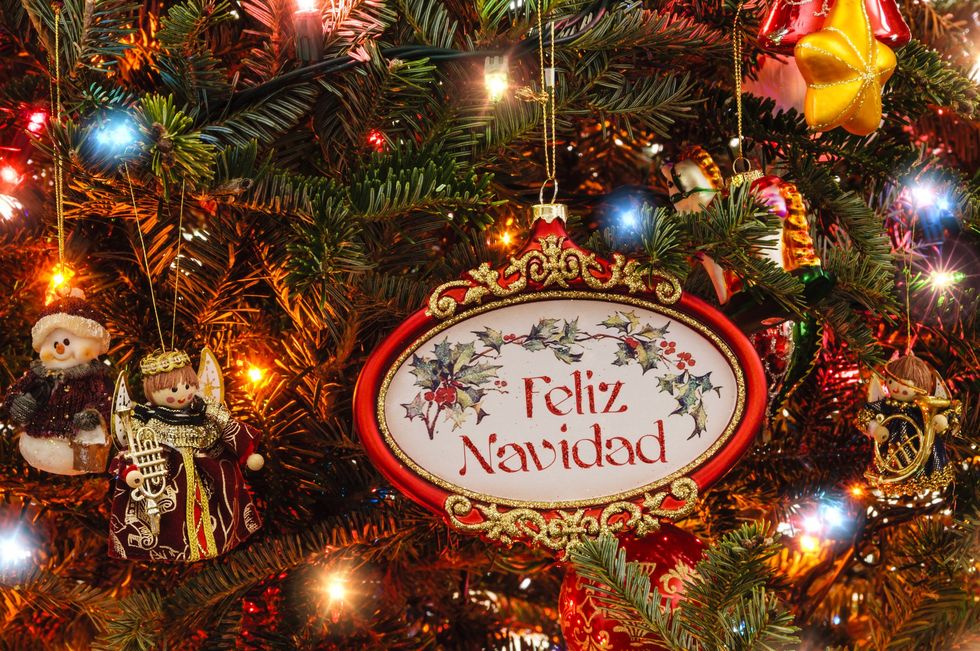
Roscón de Reyes - Spain
Pronunciation: Ross-con De Ray-yes
Another Spanish festive tradition is Roscón de Reyes - a ring-shaped sweet bread that tastes similar to brioche, filled with dried and candied fruits and is typically served with whipped cream.
Traditionally, Roscón de Reyes is eaten on Epiphany Day (January 6th), a day on which people usually exchange and open presents.
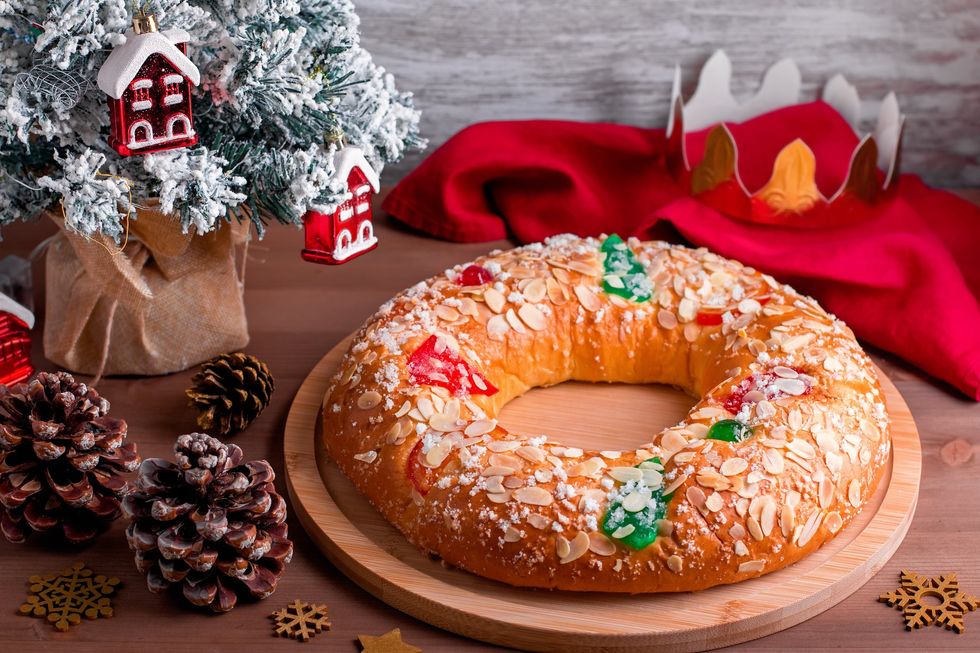
Mopani/Mopane - South Africa
Pronunciation: Mo-pah-ne
There’s a slightly less appetising festive snack in South Africa, where they take the idea of Christmas grub rather literally.
Mopani or Mopane are deep-fried caterpillars, more specifically emperor moth caterpillars, and are a Christmas Day speciality in South Africa.
They are said to taste a bit like tea and are surprisingly healthy, however, there’s no shame in preferring to stick to the mince pies and chocolates this Christmas.
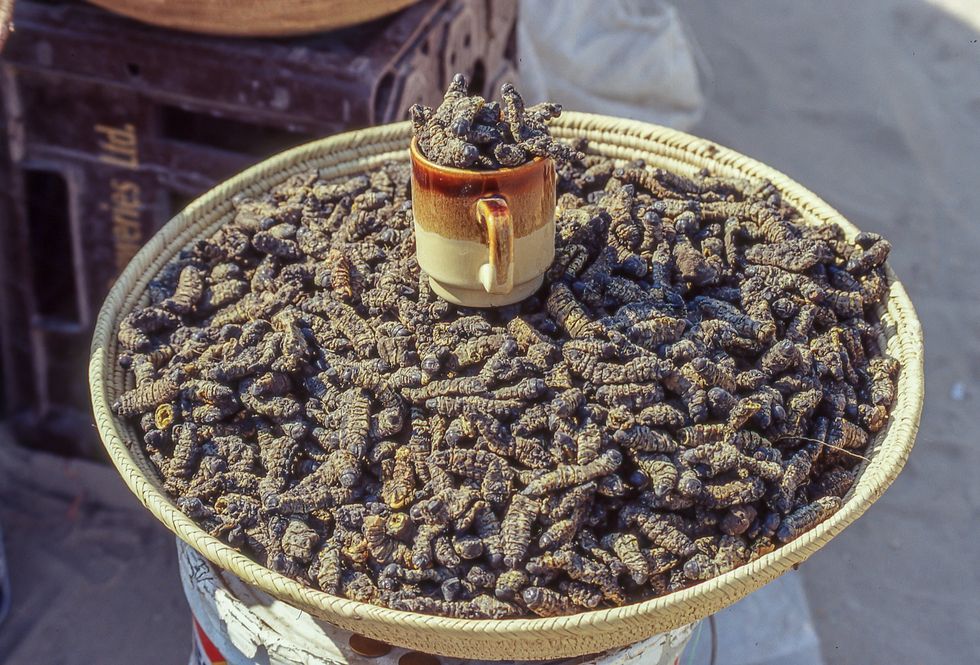
Patinaje Sobre Ruedas - Venezuela
Pronunciation: Pat-ee-nach-eh Sob-ray Roo-eh-dass
While many of us may consider ice skating to be a festive activity, in the Venezuelan capital city of Caracas, Christmas is traditionally celebrated with a nice bit of roller skating. This is what patinaje sobre ruedas literally translates to.
Christmas Eve in Caracas sees the city’s residents strap on their roller skates en mass as they take to the street for a wheel-y good time.

Weihnachtsgurke - Germany
Pronunciation: Vye-nackts-Gurr-keh
This literally means ‘The Christmas Pickle’ which is a bizarre festive tradition in Germany that involves a pickle-shaped ornament being hidden on the Christmas tree.
The tradition goes that on Christmas morning, the first person to find the pickle on the tree would receive an extra present from Santa Claus.
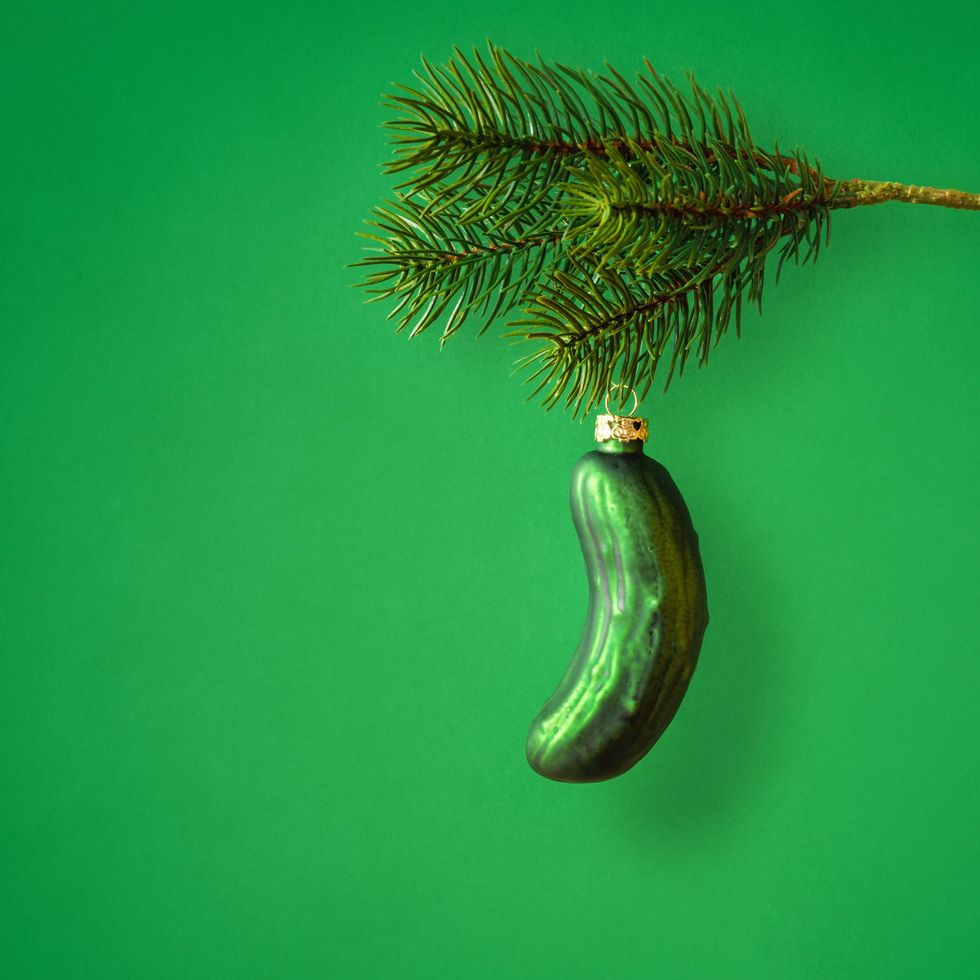
Kurisumasu ni wa Kentakii - Japan
Pronunciation: Kuh-ree-soo-Mah-soo Nee Wah Ken-Tah-Kee
This literally translates to ‘Kentucky for Christmas’, because yes, eating KFC really is a festive tradition in Japan.
Sparked by a marketing campaign by the American fast food restaurant way back in 1974, people in Japan have gotten into the festive spirit by munching on fried chicken ever since, typically as a Christmas Eve treat.

How to join the indy100's free WhatsApp channel
Sign up for our free Indy100 weekly newsletter
Have your say in our news democracy. Click the upvote icon at the top of the page to help raise this article through the indy100 rankings.
